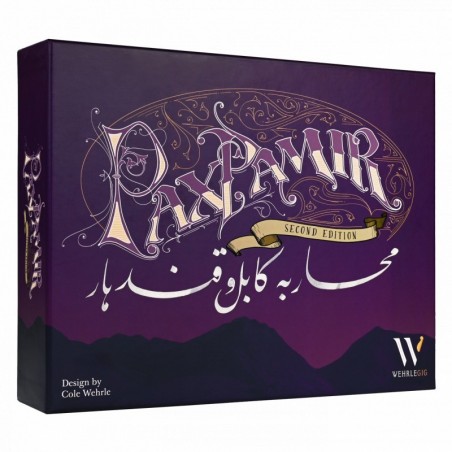
Esgotado
Esgotado


ESGOTADO
Este artigo encontra-se indisponível nos fornecedores e a aguardar fabrico de mais unidades por parte da marca, sem data prevista. Por esse motivo não estamos a aceitar encomendas deste artigo.
Recomendamos-te ativares o Alerta de Restock (abaixo) para seres notificado assim que o mesmo voltar a stock.
Editora Wehrlegig
Idioma

Dependência de idioma (0-4) 2. Média
Nº Jogadores 1 2 3 4 5
Duração Entre 1 a 2 horas
Autor Cole Wehrle, Richard Wilkins
Idade Mínima 13
Temas Economic, Educational, Negotiation, Political, Post-Napoleonic, Spies/Secret Agents
Mecânicas Action Points, Area Majority / Influence, Area Movement, Card Drafting, Hand Management, Increase Value of Unchosen Resources, Score-and-Reset Game, Simulation, Solo / Solitaire Game
Nº Cartas
142
Sleeves 63.5x88
Esgotado
Última unidade em stock
Restock
Restock
Em stock
Restock
Esgotado
Restock